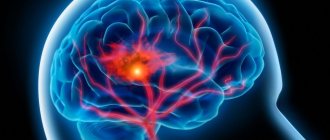Headache and fever – it is with these symptoms that people often go to the doctor. This condition can indicate a variety of diseases, so in order to determine the cause and make an accurate diagnosis, the doctor will ask about other accompanying symptoms: fever, chills, cough, weakness, etc.
Only with a complete picture is it possible to determine the disease and prescribe treatment.
Causes of headache and fever
Fever and headache can be caused by other objective reasons, for example, stress, overwork, poisoning, or prolonged exposure to the sun. Before drawing a conclusion, it is necessary to consider the accompanying symptoms and attribute them to various types of diseases and the causes of their occurrence.
It is also worth remembering that girls may experience an increase in body temperature before or during menstruation, but only slightly. A headache may also indicate that your period is approaching.
You should be concerned if the temperature lasts a long time or is high. Some diseases can occur without a headache, but with a temperature that a person may not even feel, this is especially true for people who have strong immunity. You need to pay attention to the general condition of the body, performance, sleep, food intake, activity. If there are changes, then you need to think about your health and get tested.
Infectious causes
If a person has a cold and feels unwell, then you need to pay attention to the symptoms. The most common are ARVI. They have the following severe symptoms:
- body temperature rises from 37 and above;
- there is a cough (dry or wet);
- nasal congestion;
- headache;
- lymph nodes may be enlarged;
- the general condition of the body is sluggish, performance is reduced, tends to sleep;
- runny nose.
Usually, if treatment is not delayed, acute respiratory viral infections are treated simply with syrups, tablets, and sometimes special procedures (physiotherapy, exercise therapy, salt cave - a preventive measure).
Other common infectious diseases can be identified:
- Meningitis is damage to brain tissue as a result of inflammation. It can take up to a week from the time the virus enters the body until symptoms appear. In this case, you need to act immediately, since the disease develops rapidly and can cause blindness, deafness, or even lead to death. The main symptoms to pay attention to: high temperature 38-39, vomiting, dizziness, hallucinations, fainting. In this case, there is severe pain in the head, which can radiate to the limbs, back or neck.
- Flu is a viral disease. Accompanied by high fever and body aches. The patient may feel chills or fever. Usually appears on the 5th day after infection. Symptoms may include severe headaches or hallucinations. You must consult a doctor immediately.
- Sinusitis is an inflammation of the maxillary sinuses, as a result of which accumulated pus cannot drain normally. It is recognized by the following signs: severe pain in the head (especially the forehead), stuffy nose, discharge of pus, and weakness in the body. Usually there is a headache and the body temperature rises.
- Stomach flu is an infection that occurs due to eating contaminated foods. Children who may have contact with dirt, dust on the street, or eat unwashed fruits and vegetables are more susceptible. Symptoms: nausea, vomiting, diarrhea, high fever, abdominal pain.
- Leptospirosis is an infection that is most often possible from animals (wild or domestic), as well as from contaminated water or rodents, which at first glance do not have symptoms. You can become infected through a scratch or cut. The disease manifests itself after 14 days. It occurs in an acute form, accompanied by chills, temperature up to 40, pain in the head and muscles. It is severe, affecting organs. Complications: meningitis, acute renal failure, jaundice. Treatment should be started immediately.
- Diseases of the “ENT” category are frontal sinusitis and sinusitis. Frontitis manifests itself in pain on one side of the head, localized in the forehead. Your entire forehead may hurt.
- Encephalitis is a lesion of the gray medulla. Caused by an infectious nature. The nature of its development in the first days resembles a cold, but then the symptoms increase with great speed. First, the body temperature rises slightly and pain in the head begins. Then the first signs of damage to the central nervous system appear. Convulsions and paralysis of the limbs are observed. General symptoms: body temperature rises, the person is sensitive to light, headache feels like pressure in the forehead and eyeballs, nausea, vomiting, fatigue.
Any inflammatory process must be promptly diagnosed and stopped. It's best to check your health from time to time. In addition to such infectious diseases, there are also:
- pyelonephritis - inflammation of the kidneys;
- pneumonia - inflammation of the lungs;
- inflammation of the small intestinal mucosa;
- adnexitis and others.
Treatment of such diseases is a complex, lengthy process, so it is necessary to recognize the symptoms and manifestations in a timely manner. If you have fever and pain in any part of the body, you should contact a therapist, who will refer you to a specialist. You cannot endure pain and self-medicate, as this can lead to serious consequences.
Why do your eyes hurt when you have a cold?
To understand why the eyes are the first to react to disease, you need a general understanding of their structure and location.
The human eyes are a paired organ that is located in the eye sockets of the skull and consists of the eye itself, connected via the optic nerve to the brain, and auxiliary apparatus (eyelids, muscles, lacrimal organs). The eyes are sensitive to the smallest changes, this applies not only to external stimuli, for example, the constriction of the pupil to light and its dilation to darkness, but also to internal processes. Multiple nerve endings, fibrous fibers of the anterior chamber of the eye, and venous plexuses maintain ocular pressure. All information received from the outside first falls on a nerve impulse, and then along the visual-nervous pathway is transmitted to the occipital lobe of the brain, where visual images are formed.
Attention! The slightest fluctuations in temperature, pressure, infection affect the nutrition of the eye and lead to unpleasant sensations.
A viral infection, entering the body, leads to destruction in several directions:
- Actively reproduces, releasing toxins. In this case, decay products enter the bloodstream, settle on the muscles (including the eye muscles), and the eyes experience discomfort.
- The infection leads to swelling of the mucous membranes, which spreads into the nose. Fluid accumulates in the sinuses, puts pressure on their walls, and since they are located next to the visual organs, it provokes pain in the eyeballs.
You must understand that pain in the eyes is not a disease, but only one of the symptoms of the disease, so drops and tablets will not solve the problem. In case of influenza and acute respiratory viral infections, it is better to take a sick leave to rest at home for a while. Having defeated the fever, the pain in the eyes will go away on its own.
It's not just a cold that hurts your eyes. Imagine that you skate for a long time on only one leg, after some time it will hurt from muscle overstrain. The eye muscles also get tired if you monotonously work at the computer, read, or watch TV. Prolonged tension of the eye muscles in adults leads to dryness, irritation, you don’t want to move your eyes from side to side, you want to cover them and not strain them.
Non-infectious causes
In addition to infections, fever and headache can be caused by other objective reasons. It is worth paying attention to the general condition of the person. Perhaps he was overtired, was in a stuffy, unventilated space for a long time, or the climate changed. The most common reasons:
- Poisoning is intoxication of the body caused by the use or intake of provoking substances. In addition to the main symptoms, it may be accompanied by vomiting, dizziness, diarrhea, and chills. The main thing is to prevent dehydration of the body. You need to drink more water. In case of severe poisoning, you should consult a specialist.
- Toothache associated with loss of a filling or other cause. Aching pain inside the tooth can spread its influence to the area of the face and head. Often in this case, a person is bothered by a migraine. The pain can radiate to the forehead, back of the head or temple. It is necessary to consult a dentist; it is better not to anaesthetize before the actual visit. Only if the hike is the next day.
- Time before menstruation. Before the next menstruation, girls may experience various pain symptoms, mainly in the abdomen and head. They may be accompanied by nausea, lethargy, drowsiness, irritability and apathy.
- Hypertension is high blood pressure. Typically for older people and people prone to high blood pressure. Usually one feels weakness, pulsation in the back of the head, rapid pulse, and dizziness.
- Pregnancy. In the first weeks, a slight increase in temperature may be observed, which is associated with changes in hormones. Nausea or vomiting occurs.
- Oncology - malignant tumors or changes. Accompanying symptoms are vomiting, weakness, weight loss, and problems with appetite. Each type has its own symptoms, the main thing is to prescribe treatment and carry out therapy in time.
These most common non-infectious causes of symptoms should not be ignored. Any increase in temperature must be monitored and diagnosed, first identify all the symptoms, and then contact a specialist if there is no improvement and the pain continues to bother the patient.
First aid
If a person has a headache and is freezing, first aid should be provided to him.
But first you should pay attention to the following signs:
- are there any blue discoloration of the nails and lips;
- is there any paleness of the skin;
- whether the temperature readings are elevated;
- is there general weakness, pain, malaise;
- Are your movements constrained?
- Is there any lethargy?
- are there any coordination problems or hallucinations?
- Are there any deviations in blood pressure from the norm?
If someone close to you has severe chills and these signs are observed, you should immediately consult a doctor. In case of mild discomfort, emergency assistance should be provided. It consists of the following measures:
- Drinking heavily is the enemy of many pathologies. Warm tea with honey, green or black, chamomile tea, warmed milk - all this will relieve spasms, disperse blood and reduce pain. To achieve an increase in the overall tone of the body, you need to take a small amount of ascorbic acid. This will also strengthen the body's defenses.
- In the absence of elevated temperature and other contraindications, a hot bath is recommended, which will help warm up the body and relieve tension. To enhance the effect, pine extract, soda, and sea salt are added.
- If a patient suffers from feverish tremors caused by stress factors, it is necessary to offer him tinctures of medicinal plants - valerian, peony, motherwort.
- If fever is accompanied by edema, you should take a decoction of dill seeds and a tincture of birch leaves.
- In case of intoxication, products based on absorbent substances, for example, activated carbon, rehydron, help achieve the optimal effect. They help restore water-salt balance and remove toxic substances.
- If your health suddenly becomes worse, let’s take a painkiller that will help relieve symptoms and eliminate high fever.
Before taking any measures, the causes of the observed violations should be established. The choice of funds depends on them.
If you have a headache and fever for a long time
Any concern about your health should be accompanied by a diagnosis. If symptoms bother a person for a long time, then it is necessary to consult a doctor. If the fever and headache do not go away for a long time, then you need to call an ambulance in order to get rid of the symptoms at least temporarily, if a trip to the therapist cannot be done.
It is worth understanding that complex diseases may be hidden behind such reasons. For example, tuberculosis, which is not easy to detect at an early stage. Also, it could be oncology. Both of these diseases are difficult to treat, and it must be started immediately after confirmation of such a diagnosis. You should not self-medicate or resort to traditional medicine.
You also need to think about the psychological state of the patient; some of the symptoms may be the result of non-compliance with the regimen, stress, overwork, and nervous tension.
How to feel better
To get rid of headaches, fever and start living a normal life, you need to find out the reasons for their occurrence.
Important information
The first action should be to go to the doctor, since self-treatment of an unknown disease will not eliminate it.
You can bring down the temperature yourself with the help of antipyretic drugs if it is high (more than 38). Usually take Ibuprofen or Paracetamol, the dosage of which is indicated on the package. It cannot be exceeded. It is recommended to drink plenty of fluids to protect your body from possible dehydration.
At home, you can only take painkillers. They can be individual for everyone. When independently eliminating headaches and lowering the temperature, you must adhere to the recommendations prescribed in the description of the drugs.
High temperature: what to do
Fever is a normal reaction of the body to illness, so it fights the virus. You should not rush to take antipyretics as soon as the thermometer shows thirty-eight degrees. To begin with, you can drink hot tea with lemon and honey and cover yourself with a warm blanket. But if this method does not produce results and the fever continues to increase, then you cannot do without medication. High temperature negatively affects the functioning of the cardiovascular system.
It is important to remember not to take too much aspirin as it impairs kidney function. Doctors also recommend consuming large amounts of foods containing salicylic acid when feeling unwell.
It is included in jam made from sea buckthorn, raspberries, prunes, and is also found in pineapple pulp. To prevent dehydration, you need to drink plenty of water. You can drink juices, tea, fruit drinks and other liquids. If drops of sweat appear on the forehead, this indicates a drop in temperature. To prevent it from returning, the cause must be eliminated.
Fever can be relieved using folk methods or medications. For example, rub your body with vodka or cologne, then get dressed and cover yourself with a blanket. A cold compress on the forehead or ice in the armpits, or rubbing with vinegar diluted with water also helps. The room in which the patient is located must be regularly ventilated and wet cleaned. Drinks are given every fifteen to twenty minutes, a few sips. The most common medications used are ibuprofen or paracetamol.
Aspirin is prescribed with caution because it impairs blood clotting and can cause bleeding. The drug should not be used by people with gastrointestinal diseases - it irritates the mucous membranes and causes an exacerbation of the disease
After the fever has passed, you should consult a doctor who will prescribe further treatment.
Headache and fever during pregnancy
Diseases during pregnancy can harm not only the health of the mother, but also the child. Therefore, it is important to immediately contact a specialist. The most common is ARVI. Then the mother has a runny nose and cough. It is worth starting treatment on time, and choosing drugs that can be used by pregnant women to protect their health. It is worth understanding that a simple disease can infect a child, which will lead to possible health problems or miscarriage.
Intestinal and urinary tract infections are common. It is worth paying special attention to high temperature (more than 38), which persists regardless of the cause. It can lead to deformation of the child’s limbs in the early stages, even if this temperature lasts only a day. In the early stages, miscarriage is possible, and in the later stages, premature birth is possible due to poor circulation of the placenta.
Pregnant women are prescribed Paracetamol to reduce fever. It is necessary to adhere to the recommendations of the gynecologist. The main thing is to contact a specialist in time.











